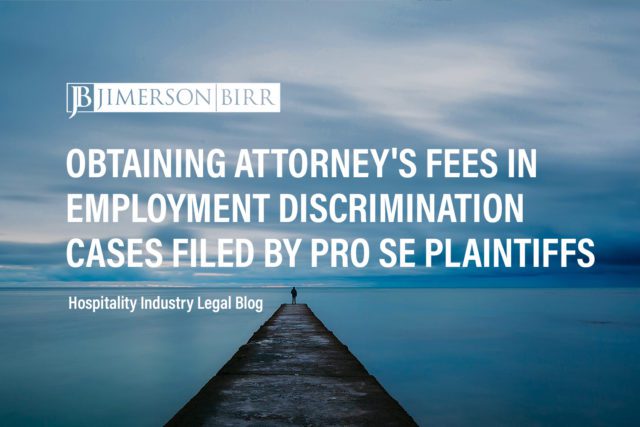How does franchising affect businesses?
Franchising can have significant effects on businesses, both positive and negative. On the positive side, franchising offers businesses an opportunity for rapid expansion and growth without the need for significant capital investment. By franchising their brand and business model, companies can leverage the resources, expertise, and entrepreneurial spirit of franchisees to establish new locations in diverse markets. This allows businesses to penetrate new territories and reach a broader customer base while sharing the risks and responsibilities of expansion with franchisees. Additionally, franchising can enhance brand visibility and recognition, as franchise locations provide a consistent customer experience and reinforce brand loyalty across different regions.
However, franchising also presents challenges and risks for businesses. One major concern is maintaining brand consistency and quality control across franchise locations. Variations in operations, customer service, and product quality among franchisees can damage the brand’s reputation and erode consumer trust. Additionally, conflicts may arise between franchisors and franchisees over issues such as royalty fees, marketing expenditures, territory rights, and operational standards. Franchisors must carefully manage these relationships and provide ongoing support and guidance to franchisees to ensure compliance with brand standards and maximize success.
Need help regarding franchising? Schedule your consultation today with a top hospitality attorney.
In Florida, which laws and regulations apply to franchising?
In Florida, franchising is primarily governed by a combination of federal and state laws, as well as regulations specific to the franchising industry. Some of the key laws and regulations that apply to franchising in Florida include:
- Federal Trade Commission (FTC) Franchise Rule: The FTC Franchise Rule is a federal regulation that requires franchisors to disclose certain information to prospective franchisees before the sale of a franchise. This includes providing a Franchise Disclosure Document (FDD) containing information about the franchisor, the franchise opportunity, and the terms of the franchise agreement. Florida follows the requirements set forth by the FTC Franchise Rule.
- Florida Franchise Act (Florida Statutes Section 817.416): Florida has its own state law governing franchising that regulates the offer and sale of franchises in the state and requires franchisors to register their FDD with the Florida Department of Agriculture and Consumer Services (FDACS) before offering or selling franchises in Florida.
- Contract Law: Franchise agreements are governed by contract law, which includes principles of offer, acceptance, consideration, and the legal enforceability of agreements. Franchise agreements must comply with general contract law principles as well as any specific requirements set forth by applicable statutes and regulations. Contract law in Florida is governed mostly by judge-made law rather than statutes.
What are common issues regarding franchising that lead to litigation?
Some of the most frequent issues regarding franchising can lead to litigation include:
- Breach of Contract: Disputes may arise when either party fails to uphold their obligations as outlined in the franchise agreement. This could involve failure to pay fees, failure to provide support or training, or failure to adhere to operational standards set forth by the franchisor.
- Misrepresentation or Fraud: Franchisees may allege that the franchisor made false or misleading statements during the franchise sales process, such as inflating potential earnings or misrepresenting the level of support provided. Franchisees may seek damages for financial losses incurred as a result of these misrepresentations.
- Termination and Non-Renewal: Franchise agreements typically include provisions outlining the circumstances under which the agreement can be terminated. Disputes may arise if either party believes the termination or non-renewal was unjustified or in violation of the agreement’s terms.
- Encroachment and Territory Disputes: Franchisees may allege that the franchisor has allowed too many franchise locations to open in close proximity to each other, resulting in competition and cannibalization of sales. Franchisees may seek compensation or seek to enforce territorial rights outlined in the franchise agreement.
- Intellectual Property Disputes: Franchisees may be accused of infringing on the franchisor’s trademarks, trade secrets, or other intellectual property rights. Conversely, franchisees may allege that the franchisor failed to protect their intellectual property or provide adequate support for marketing and brand management.
- Renewal and Transfer Issues: Franchisees may encounter difficulties in renewing their franchise agreements or transferring ownership of their franchise. Disputes may arise over the terms and conditions of renewal or transfer, as well as fees or restrictions imposed by the franchisor.
We are value-based attorneys at Jimerson Birr, which means we look at each action with our clients from the point of view of costs and benefits while reducing liability. Then, based on our client’s objectives, we chart a path to seek appropriate remedies.
To determine whether your unique situation may necessitate litigation, please contact our office to set up your initial consultation.
What steps should businesses take to minimize the risk of litigation over franchising?
- Comprehensive Franchise Disclosure: Franchisors should provide prospective franchisees with a comprehensive Franchise Disclosure Document (FDD) that fully discloses all material information about the franchise opportunity, including financial performance representations, fees, obligations, and legal disclosures. Transparent and accurate disclosure can help prevent claims of misrepresentation or fraud.
- Thorough Due Diligence: Prospective franchisees should conduct thorough due diligence before investing in a franchise opportunity. This includes researching the franchisor’s reputation, financial stability, litigation history, and the performance of existing franchise locations. Understanding the risks and rewards associated with the franchise can help mitigate the likelihood of disputes later on.
- Clear Franchise Agreement: Franchisors should draft clear and comprehensive franchise agreements that outline the rights, responsibilities, and obligations of both parties in detail. The agreement should address key aspects of the franchise relationship, including territory rights, fees, operational standards, renewal and termination provisions, and dispute resolution mechanisms.
- Training and Support: Franchisors should provide comprehensive training and ongoing support to franchisees to ensure they understand and can comply with the franchisor’s system standards and operational procedures. Well-trained franchisees are more likely to succeed and less likely to encounter issues that could lead to litigation.
- Effective Communication: Maintain open and transparent communication channels between franchisors and franchisees. Encourage franchisees to raise concerns or issues promptly and provide a mechanism for resolving disputes or addressing grievances in a timely and constructive manner. Proactive communication can help prevent misunderstandings and prevent disputes from escalating.
- Compliance with Laws and Regulations: Ensure compliance with all relevant federal, state, and local laws and regulations governing franchising, including disclosure requirements, franchise registration laws, and antitrust regulations. Non-compliance with legal requirements can increase the risk of litigation and regulatory enforcement actions.
- Regular Audits and Monitoring: Franchisors should conduct regular audits and monitoring of franchisee operations to ensure compliance with system standards, brand consistency, and quality control measures. Address any deficiencies or non-compliance issues promptly and provide resources to help franchisees meet the required standards.
Frequently Asked Questions
What are the benefits of franchising?
Franchising offers several benefits for both franchisors and franchisees. For franchisors, it provides a way to expand their business rapidly without significant capital investment. Franchisees benefit from access to a proven business model, brand recognition, marketing support, and ongoing training and assistance from the franchisor.
What support does a franchisor offer franchisees?
Franchisors typically provide franchisees with training, support, and ongoing assistance to help them succeed. This may include initial training on operating procedures, ongoing training for new products or services, marketing support, access to proprietary software or technology, and assistance with site selection, lease negotiations, and business operations.
What are the risks of franchising?
While franchising offers many benefits, it also carries risks for both franchisors and franchisees. Franchisors risk damage to their brand reputation if franchisees fail to meet brand standards or engage in unethical behavior. Franchisees risk financial loss if the franchise business fails to generate sufficient revenue or if they encounter disputes with the franchisor.
Have more questions about a franchising-related situation?
Crucially, this overview of franchising does not begin to cover all the laws implicated by this issue or the factors that may compel the application of such laws. Every case is unique, and the laws can produce different outcomes depending on the individual circumstances.
Jimerson Birr attorneys guide our clients to help make informed decisions while ensuring their rights are respected and protected. Our lawyers are highly trained and experienced in the nuances of the law, so they can accurately interpret statutes and case law and holistically prepare individuals or companies for their legal endeavors. Through this intense personal investment and advocacy, our lawyers will help resolve the issue’s complicated legal problems efficiently and effectively.
Having a Jimerson Birr attorney on your side means securing a team of seasoned, multi-dimensional, cross-functional legal professionals. Whether it is a transaction, an operational issue, a regulatory challenge, or a contested legal predicament that may require court intervention, we remain tireless advocates at every step. Being a value-added law firm means putting the client at the forefront of everything we do. We use our experience to help our clients navigate even the most complex problems and come out the other side triumphant.
If you want to understand your case, the merits of your claim or defense, potential monetary awards, or the amount of exposure you face, you should speak with a qualified Jimerson Birr lawyer. Our experienced team of attorneys is here to help. Call Jimerson Birr at (904) 389-0050 or use the contact form to schedule a consultation.

We live by our 7 Superior Service Commitments
- Conferring Client-Defined Value
- Efficient and Cost-Effective
- Accessibility
- Delivering an Experience While Delivering Results
- Meaningful and Enduring Partnership
- Exceptional Communication Based Upon Listening
- Accountability to Goals










